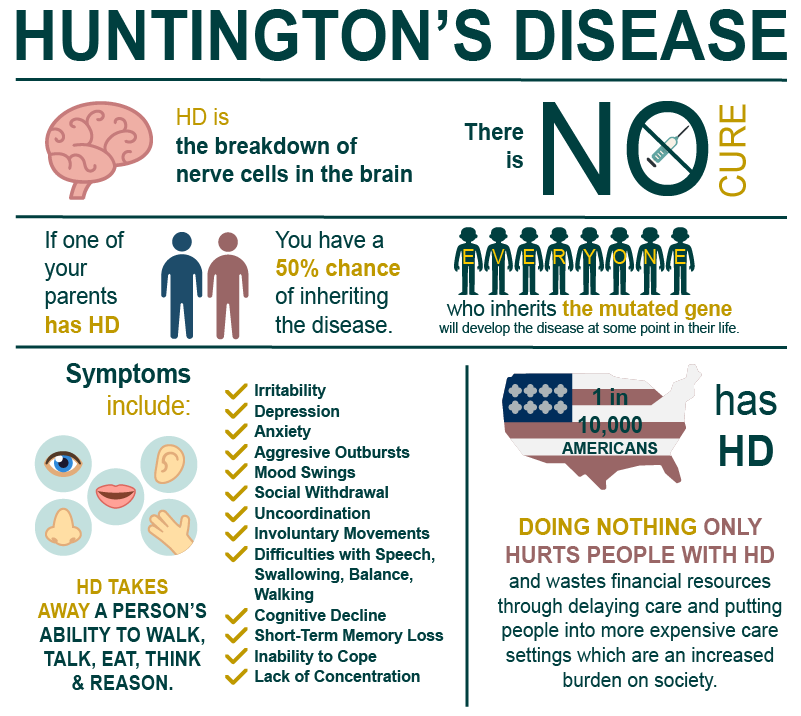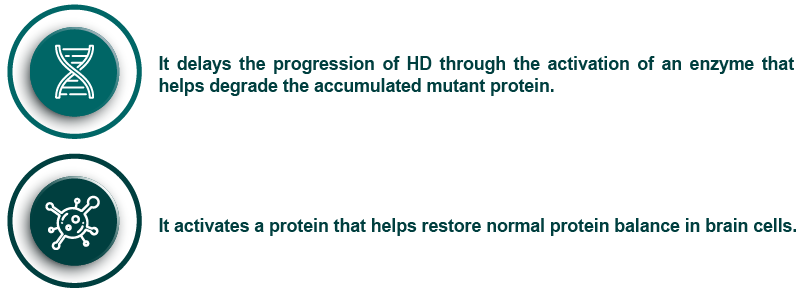The multitude of diseases that affect humans every day are raising the demand for innovation in medicine to treat diseases that society has not yet found the solution for. Among them are Huntington’s and Parkinson’s disease, serious brain disorders that affect more than 10 million people around the world.
According to the United States National Institute of Neurological Disorders and Stroke, Huntington’s disease (HD) is defined as an inherited disorder that causes degeneration of brain cells and called neurons in motor control regions of the brain and other areas. The symptoms of HD, which progressively worsen over time, include uncontrolled movements (“chorea”), abnormal body postures, as well as changes in behavior, emotion, judgment, and cognition. As these symptoms become more pronounced, patients may have difficulty walking, talking, or completing other simple tasks.
.
Source: Huffington Post (2015)
.
Finding a cure for these diseases and other brain disorders has been a focus for healthcare groups around the world and despite international efforts, the diseases remain without a cure. However, scientists from the National Brain Research Centre in Manesar and the Bose Institute in India, have found a compound extracted from neem seeds can reverse behavioral changes and extend the lifespan of genetically engineered mice which display features of Huntington’s disease.
The compound, azadiradione, works as a therapeutic molecule with two beneficial effects:
These findings are considered a major breakthrough by the scientific community and will be published by the German journal, Molecular Neurobiology, to explain how neem improved muscle strength, clasping and walking behavior on the mice treated. Treatment with azadiradione contributed to delaying the progression of the disease’s effects and the results are promising, despite the early stage of this new research on neem compounds. Scientists will now explore the effects of azadiradione on other degenerative brain disorders such as Parkinson’s disease and Alzheimer’s, which also involve the accumulation of mutant misfolded proteins.
Treating some of the effects of these diseases with natural solutions like neem will allow a greater amount of the affected global population to remedy and reverse their symptoms, improving their quality of life.
The neem tree continues to bloom in the healthcare industry due to the quantity of beneficial compounds it possesses. Its healing potential has been proven across many aspects of the healthcare industry, as an efficient treatment for diabetes, skincare problems and even exploratory research in cancer. Nature is empowering the healthcare sector with alternative medicine and treatments, which are showing to be successful where traditional healthcare has fallen short. As society evolves, neem has the potential to become a reliable resource in healthcare.

